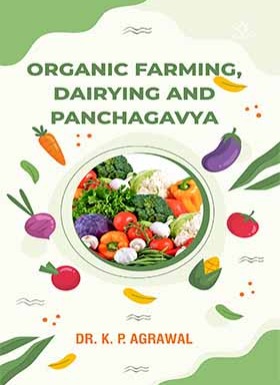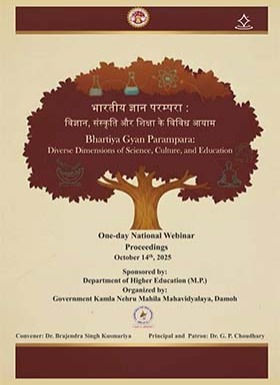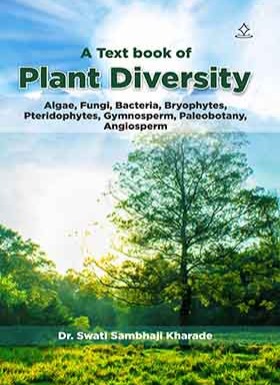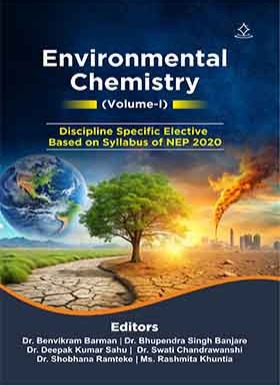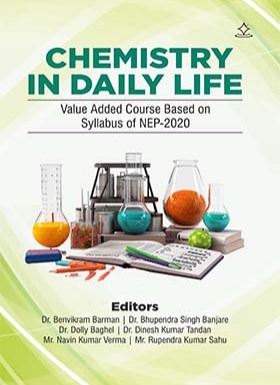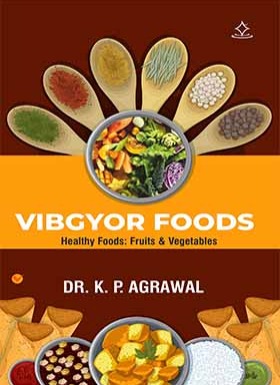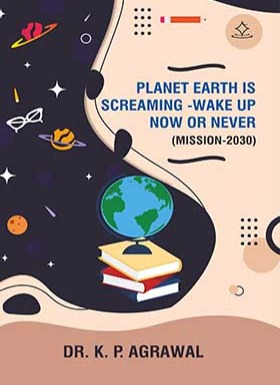About Book
Organic agriculture is a production system that sustains the health of soils, ecosystems, and people. It relies on ecological processes, biodiversity and cycles adopted to local conditions, rather than the use of inputs with adverse effects.
Organic farming, also known as organic agriculture or ecological farming or biological farming, is an agricultural system that uses fertilizers of organic origin such as compost manure, green manure, and bone meal and places emphasis on techniques such as crop rotation and companion planting.
Dairying, branch of agriculture that encompasses the breeding, raising, and utilization of dairy animals, primarily cows, to produce milk and the various dairy products processed from it.
Panchagavya is a mixture used in traditional Hindu rituals that is prepared by mixing five ingredients. The three direct constituents are cow dung, urine, and milk; the two derived products are curd and ghee. These are mixed and then allowed to ferment.
Panchagavya plays a crucial role in organic farming practices as the most favourable organic manure for agricultural fields. Its application ensures zero usage of harmful synthetic fertilizers, pesticides, insecticides, and antibiotics.
All these issues have been covered under four chapters of the book.
About Author
Dr. K. P. Agrawal obtained his Bachelor of Veterinary Science and Animal Husbandry (B.V.Sc.&AH) in 1968, Master of Veterinary Science (M.V.Sc.) in 1972, from Veterinary College, Mathura, and Ph.D. from Indian Veterinary Research Institute (I.V.R.I.) Izatnagar in 1980. He had a humble beginning of his research/teaching career as a demonstrator in the Physiology Department at the Veterinary College, Mathura (1968 to 1970). Since then, he had worked in different capacities: as research assistant; senior research assistant; scientist; senior scientist at I.V.R.I. Izatnagar; associate research scientist/ associate professor/ research scientist at the Veterinary College, Gujarat Agricultural University, Gujarat; and scientist-S3/principal scientist/head of the division at the Central Institute for Research on Goats, Makhdoom. He assumed the responsibility of the National Coordinator of the World Bank National Agricultural Technology Project (NATP) on 1st April, 1999 and continued as the National Coordinator of another World Bank-aided project, the National Agricultural Innovation Project (NAIP), and served for 2 years before he retired in July 2007. He has 38 years of service experience, of which 30 years of wide experience in research, teaching, extension, research management, policy planning and institutional building. His significant research contribution is in the area of embryo transfer technology. He has 350 publications to his credit, of which 30 are books, chapters in books, monographs and bulletins. Dr. Agrawal has been the recipient of several awards/honours during his academic and research career.
After retirement, Dr. K.P. Agrawal worked as a Senior Consultant in World Bank-Supported Projects, such as the “Water Sector Restructuring Project” in Madhya Pradesh, “Rajasthan Agricultural Competitive Project” in Rajasthan and “National Agricultural Innovation Project” in Indian Council of Agricultural Research (ICAR). Currently he is independent consultant
